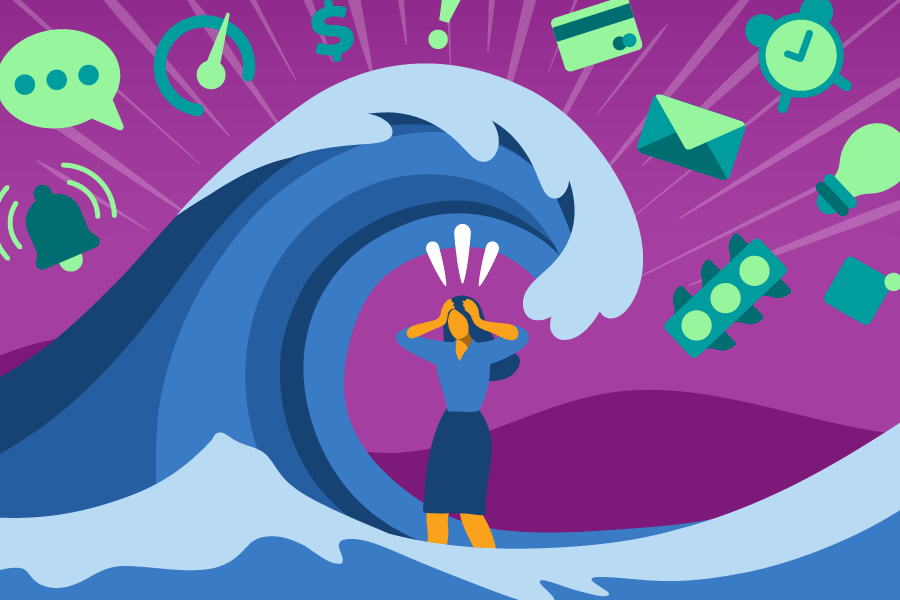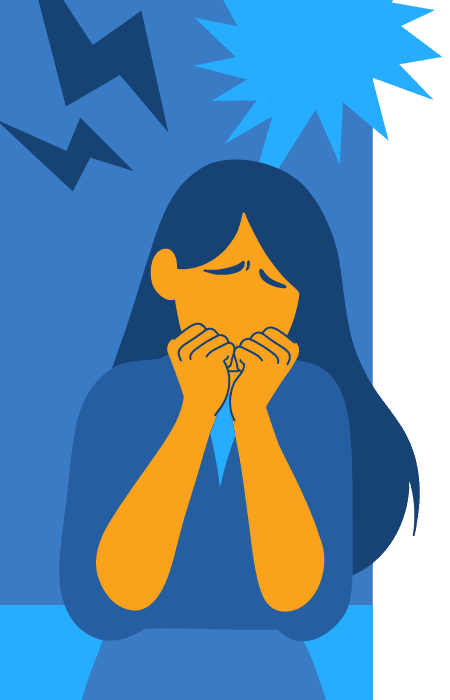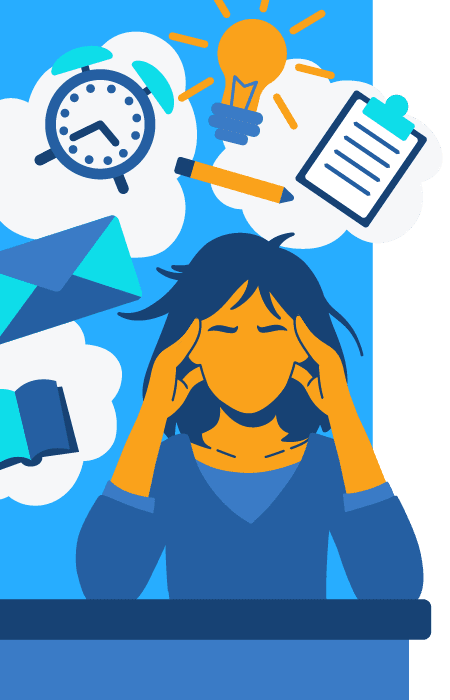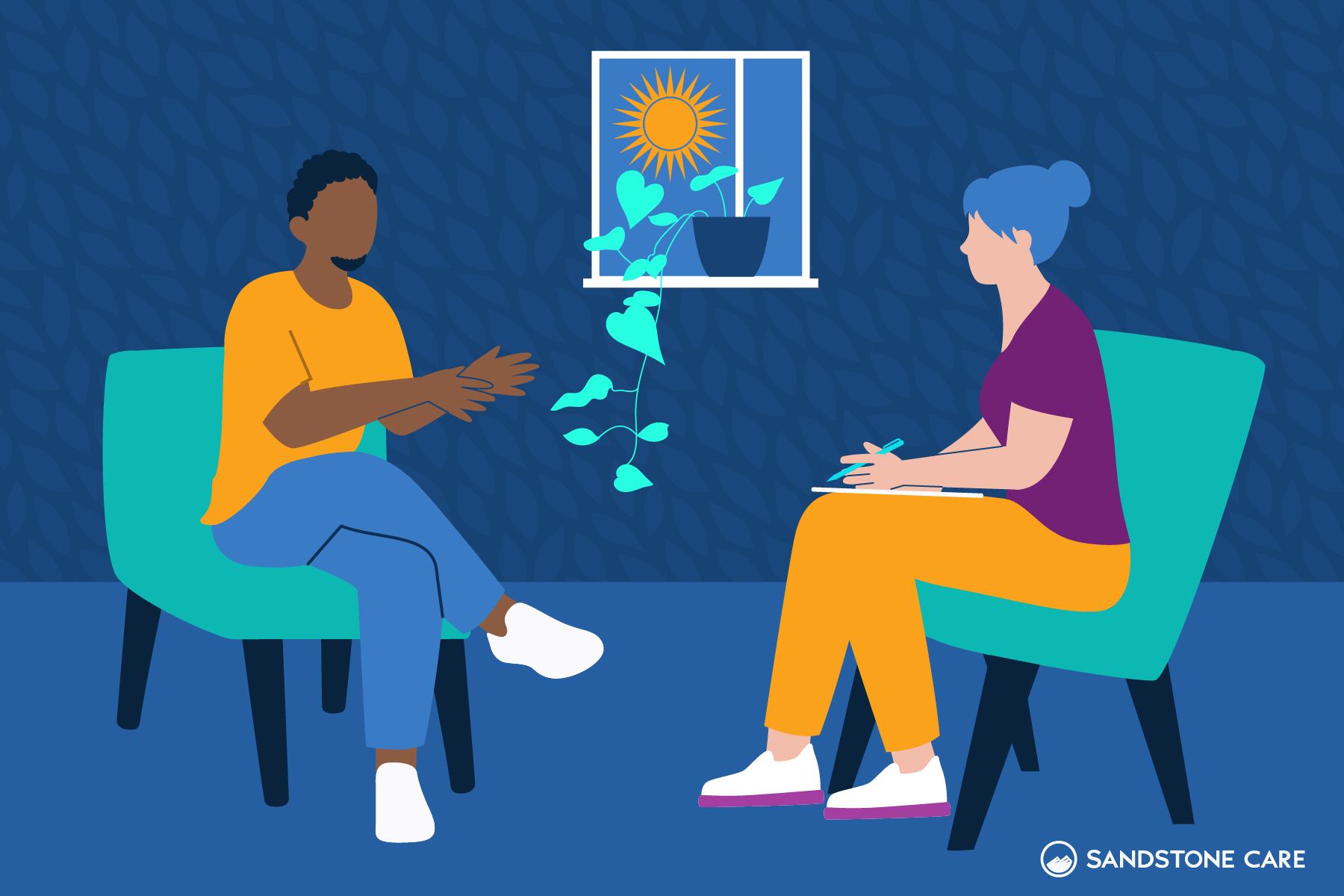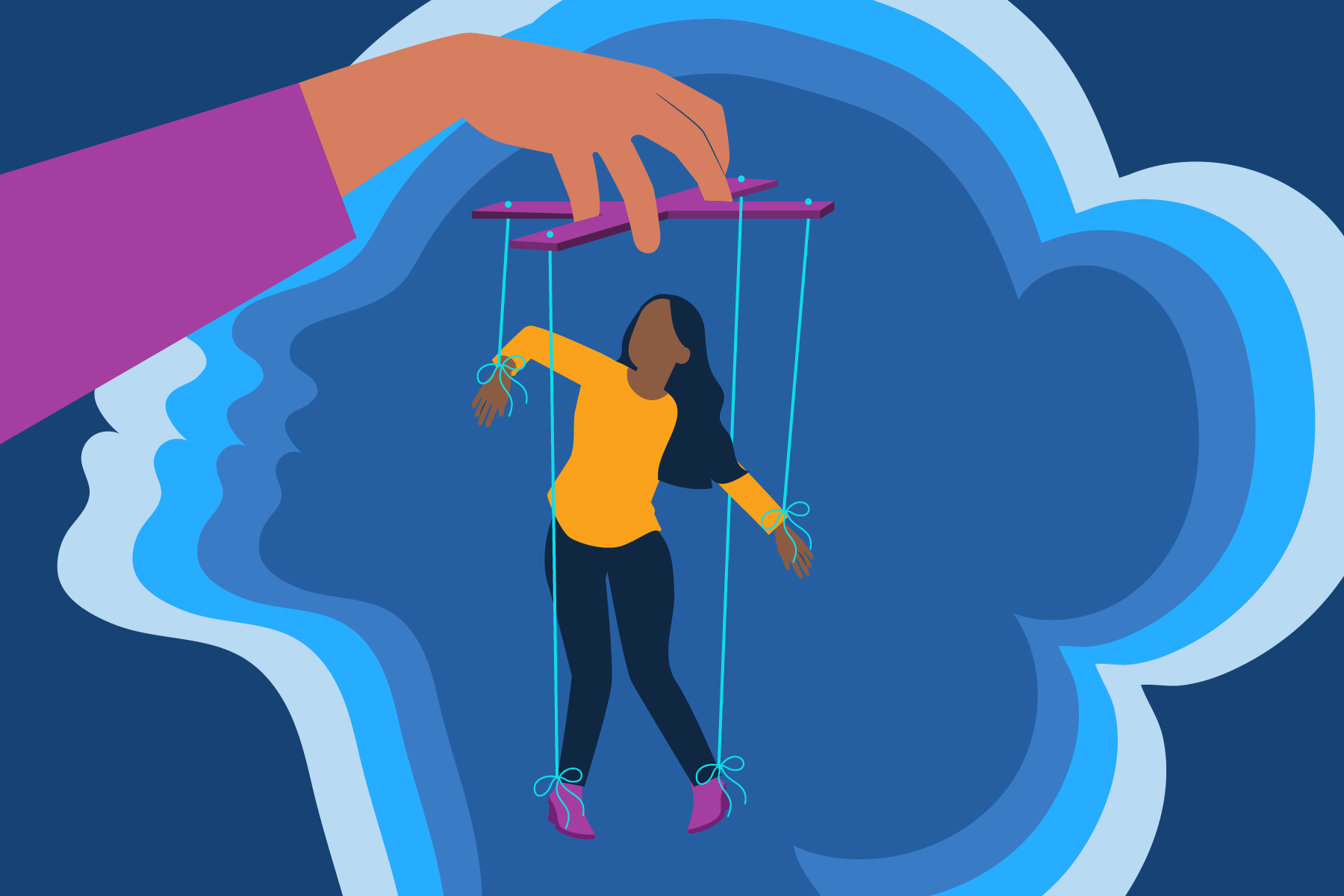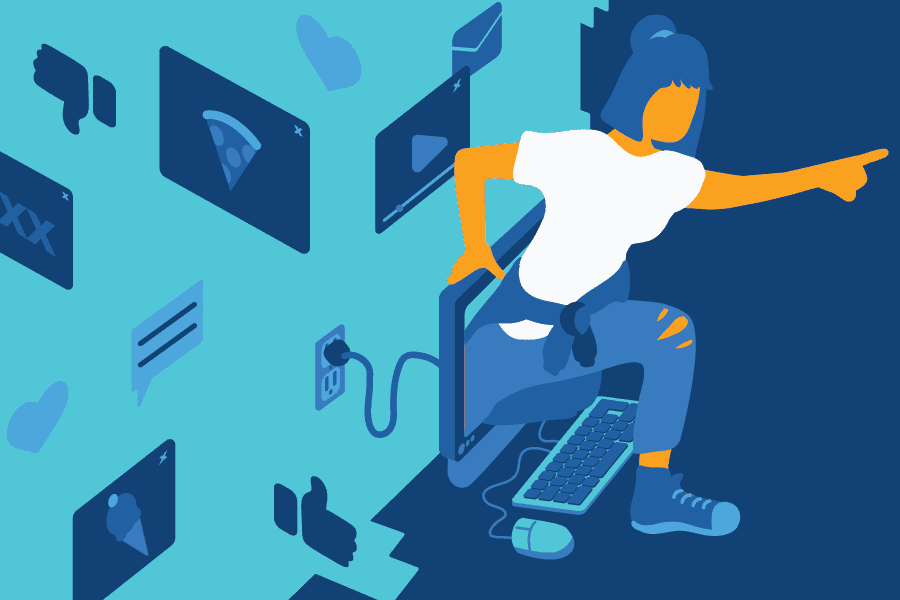Overstimulated Meaning
What Is Overstimulation?
Overstimulation means that your brain struggles to handle too much sensory or mental input at once, leaving you feeling overwhelmed.
This could be caused by loud noises, bright lights, overlapping senses, strong emotions, or mental stress.
In your brain, areas like the thalamus and amygdala go into overdrive, trying to wade through all the incoming information.
This often triggers the fight-or-flight response, releasing stress hormones like cortisol and adrenaline, which increase your heart rate, heighten your senses, and put your nervous system on high alert.
Over time, this can leave you feeling anxious, irritable, or physically drained.
When overstimulated, it can also affect your relationships and personal dynamics.
You may become more impatient, snap at loved ones, or withdraw from conversations because it feels like “too much.”
This can create misunderstandings or tension, especially if others don’t realize you’re feeling overwhelmed.
Recognizing and managing overstimulation is important to protect both your mental well-being and your connections with those around you.
What Does Overstimulation Feel Like?
Overstimulation is a point of sensory overload where you feel mentally, emotionally, and physically uncomfortable. You may begin to “shut down” as a result.
You may also feel panicked or anxious until you are able to leave the situation. Headaches, dizziness, fatigue, or nausea can also occur when you feel overstimulated.
Is Overstimulation Bad?
Yes. Consistent feelings of overstimulation, especially for those living with sensory processing issues from ADHD or post-traumatic stress disorder (PTSD), can have negative effects.
However, feeling overstimulated on occasion is not anything to worry about.
When you start to notice symptoms that make it difficult for you to function in your day-to-day life, then it is something that you should consider speaking to a medical professional about.
Hypersensitivity to stimuli and overstimulation can lead to feelings of burnout, exhaustion, fatigue, and compromise emotional resilience. This can further add to feelings of anxiety, panic, depression, and stress.
What Is the Difference Between Overstimulated and Overwhelmed?
Overstimulated is when your senses are overloaded, like with too much noise or activity. Overwhelmed is a broader feeling of being unable to handle emotions, tasks, or stress.
Overstimulation can cause overwhelming feelings of stress, however, so they can certainly happen at the same time.
While feeling overstimulated and overwhelmed are similar, overstimulation can have more intense physical reactions to your immediate surroundings.
What Is the Difference Between Overstimulation and a Panic Attack?
Overstimulation is caused by clear sensory overload, like noise or activity. A panic attack often has no clear trigger and comes with intense fear and physical symptoms like trouble breathing.
Feeling overstimulated can lead to a panic attack, especially when combined with crowded spaces, loud noises, or flashing lights.
Those living with anxiety disorders or trauma can also be at an increased risk of overstimulation which can lead to panic attacks.

Is this blog hitting close to home?
We’re here to help.
Causes of Overstimulation
What Causes Overstimulation?
Overstimulation is caused by the brain having oversensitive processing areas, like the amygdala and sensory cortex, which makes it harder to filter out unimportant details.
This is common in individuals with ADHD, autism, or anxiety, where the brain may be constantly trying to process information that others may be able to ignore.
Overstimulation can also occur when the brain’s executive functions, located in the prefrontal cortex, are overwhelmed by tasks like decision-making, problem-solving, or switching between activities.
Specific triggers of overstimulation include:
- Flickering fluorescent lights or overly bright screens
- Patterns with busy or chaotic visuals
- Sudden, sharp changes in temperature or texture
- Overlapping conversations or too many people talking at once
- Strong smells (like perfumes or cleaning products)
- Repetitive or loud sounds, such as clicking pens or humming machines
- Multitasking or constant interruptions while trying to focus
- Emotional stress, like unexpected criticism or intense social interactions
Also, constant exposure to stress through excessive screen time and lack of self-care can lead to overstimulation.
This is especially true if you constantly expose yourself to digital media, social media, and other stimulating digital environments.
Sometimes physical changes can cause someone to become overstimulated more easily. For example, some pregnant women have improved hearing during and after giving birth, some physicians believe that this could cause women to become more easily overstimulated, even if it was never a problem previously.
Why Do I Get Overstimulated So Easily?
If you get overstimulated easily, it may be because your brain is more sensitive to sensory or emotional input.
For some, this is linked to conditions like ADHD, autism, or anxiety, where the nervous system reacts strongly to stimuli.
Past experiences, such as trauma, or being under constant stress can also make your brain more reactive, leaving you less able to tolerate busy or overwhelming environments.
Factors like being overly tired, not having enough downtime, or constantly multitasking can make it harder for your brain to keep up.
Everyone’s brain processes stimulation differently, and some people naturally have a lower threshold for what feels overwhelming.
What Is Overstimulation a Symptom of?
Overstimulation may be related to various underlying anxiety disorders, trauma, PTSD, ADHD, or autism spectrum disorder.
However, a person living with any of these does not necessarily regularly experience overstimulation.
Likewise, being overstimulated does not mean that you also have any of these other disorders. Talking with a professional about your experiences is the most effective way to explore what is causing your struggles with sensory input.
Overstimulation Anxiety
Is Overstimulation a Sign of Anxiety?
Yes, overstimulation can be a sign of anxiety, and it ties back to how our brains evolved to keep us safe.
Many researchers theorize that anxiety developed as a survival tool, putting the brain on high alert to detect and respond to potential threats.
In this state, the brain becomes extra sensitive to sights, sounds, and other stimuli to make sure nothing dangerous is missed.
In modern life, though, this heightened sensitivity can backfire.
Everyday situations, like crowded spaces or loud environments, might trigger the same intense response, even when there’s no real danger.
For someone with anxiety, the brain struggles to filter out unimportant details because it is trying to spot any sign of a threat.
This leftover survival mechanism can make harmless situations feel overwhelming.
Can Overstimulation Cause Anxiety?
Yes, overstimulation can bring with it feelings of anxiety and even fear, panic, and other challenges.
This can lead to a detrimental cycle: anxiety can cause overstimulation, and in turn, feeling overstimulated can result in further feelings of anxiety and panic.
ADHD Overstimulation
ADHD overstimulation happens because people with the condition have a difficult time filtering out and prioritizing information. This means that certain sounds, images, or environments that other people are able to tune out, will be more difficult to handle for those with ADHD.
However, it is always possible to address ADHD and its relationship with overstimulation for healthier mental and emotional well-being.
What Is ADHD Overstimulation?
ADHD overstimulation occurs when those living with ADHD feel overwhelmed by both internal and external environments. An ADHD person’s brain may have a hard time processing multiple stresses at once.
Those living with ADHD or similar mental health conditions may pay closer attention to each of these stimuli, hyperfixate on them, or may experience them for longer periods, resulting in becoming overstimulated.
Is Overstimulation a Sign of ADHD?
Yes, overstimulation is often a sign of ADHD because ADHD brains process sensory and mental information differently.
A big part of this comes down to dopamine, a chemical that helps your brain decide what to focus on and what to tune out.
In ADHD, dopamine levels are lower, which means the brain struggles to filter and prioritize input. Instead of ignoring background noise or small distractions, everything—like a tapping pen, a ticking clock, or someone talking—feels equally important, quickly becoming overwhelming.
For those without ADHD, it might look like the person struggling just lacks the ability to focus.
People might see someone with ADHD fidgeting, snapping, or zoning out and assume they’re not trying hard enough, but in reality, their brain is overwhelmed by too much input all at once.
However, experiencing an episode of overstimulation does not necessarily mean that you or your loved one have ADHD.
Talking to a mental health professional about other signs of ADHD and personal challenges is necessary to diagnose ADHD.
What Are ADHD Overstimulation Symptoms?
Some possible symptoms of ADHD overstimulation include:
- Restlessness
- Irritability
- Headaches
- Dizziness
- Difficulty regulating emotions
- Anxiety
- Panic
- Feelings of weakness
It can also impact behaviors, sleep patterns, and social wellness.
What Is ADHD Stimming?
ADHD stimming is a repeated action, like tapping or rocking back and forth, that those living with ADHD may use to self-soothe during difficult or overstimulating situations.
Rocking, grinding teeth, biting nails, or repeating words are also common examples of ADHD stimming.
Autism Overstimulation
Is Overstimulation a Sign of Autism?
Yes, overstimulation can be a sign of potential autism spectrum disorder.
People with autism often have heightened sensory sensitivity, meaning their brains process sounds, lights, textures, or smells much more intensely than others.
This can make it harder to filter out or ignore sensory input, leading to a sense of being overwhelmed in environments that might feel manageable to others.
Overstimulation can disrupt many areas of life. In school or work settings, constant noise or bright lights can make it nearly impossible to concentrate.
This can make them struggle with tests or work projects, even though they may be completely capable of doing well.
Social interactions, like group conversations or crowded events, can feel unbearable because of overlapping sounds, unpredictable movements, or intense smells, often causing someone to withdraw and feel isolated.
Even daily activities, like grocery shopping, eating at a restaurant, or trying on clothes, can feel overwhelming due to sensory triggers.
Over time, this can affect relationships, as loved ones might not understand why certain situations are avoided, and can lead to emotional exhaustion, anxiety, or depression as the person struggles to cope with a world that feels too intense.
It is important to note that feeling overstimulated is not the only qualifying factor for autism. Talking to a professional is the best way to explore other signs of autism in a loved one.
What Does an Autistic Shutdown Look Like?
An autistic shutdown or “sensory meltdown” can result from feeling physically and mentally overwhelmed. A person may “retreat” into themselves, becoming quiet, sitting still, and disconnecting from their environment.
It is a very internal response to excessive stimuli. A person may appear unfocused, fatigued, quiet, and have difficulty responding to others. Stimming is also common during an autistic shutdown.
Overstimulation Symptoms
How Do You Tell When You’re Overstimulated?
Feeling overstimulated has many signs. These include:
- Hypersensitivity to lights and sounds
- Irritation or emotional dysregulation
- Inability to process new sensory information
- Feeling overwhelmed
- Difficulty focusing
- Headaches
- Hypertension
You don’t have to experience all of these signs to be overstimulated. Recognizing even a couple of symptoms can indicate that you should use a practiced and planned coping strategy.
What Are Overstimulation Examples?
Some examples of things that can cause overstimulation include:
- Crowded and loud spaces like parties, restaurants, or social gatherings
- Sudden and loud noises, such as passing emergency vehicles
- Strong perfumes
- Loud noises, such as a loud radio
- Excessive social media use or constant notifications from social media or digital devices
- Consistent screaming, common in parents watching children for many hours
- Uncomfortable temperatures
- Long and emotionally charged interactions with others
Overstimulation can also occur when trying to process too much information at work or school, especially if there are distractions.
Why Do I Cry When I’m Overstimulated?
Crying is a common response to overstimulation. It can be an inherent response to challenging feelings, emotional dysregulation, anxiety, and stress.
Overstimulation can also make it difficult to regulate emotions. Crying can be more common as a result.
Can You Get Angry When Overstimulated?
Yes, anger and irritation are common responses to overstimulation.
Some people may also lash out in anger or throw tantrums when overstimulated. This can be a way of trying to cope with the situation. Working with a mental health professional to develop healthier coping strategies and prevent tantrums is part of learning to address overstimulation.
Can You Die From Overstimulation?
Feeling overstimulated itself is not life-threatening.
However, a person can be at an increased risk of self-harm. Depending on how you respond to overstimulation, you may inadvertently put yourself at risk while feeling disoriented or irritated.
Being less aware of your environment, panicking, and unhealthy coping mechanisms like substance use or erratic behaviors can be dangerous effects of overstimulation.
Signs of Overstimulation in Adults
What Does Overstimulation Look Like in Adults?
Overstimulation in adults can cause physical discomfort like headaches, dizziness, and fatigue. It can also make a person feel emotionally overwhelmed, anxious, and fearful.
Some adults may also be at a high risk of experiencing panic attacks if they are overstimulated often.
What Is an Overstimulated Parent?
An overstimulated parent is a parent who is unable to focus, function, or calm themselves down due to the challenges of watching a child all day.
Overstimulation is common in parents caring for young children.
It can be caused by:
- Constant noises of children
- Noisy toys left on
- Sleep deprivation
- Repeatedly having their name called
- Physical clutter in the house
- Not having time alone
- The constant movement of children crawling or running
Overstimulated parents can also be physically and mentally exhausted.
Overstimulated parents may also still have to tend to household chores or have remote work. This adds even more stress and stimulation that can lead to a sensory meltdown.
How to Deal with Overstimulation
How to Calm Down When Overstimulated
Some ways to calm down when overstimulated include:
- Having an escape plan for social events and removing yourself from the situation
- Identifying a quiet, personal, safe space such as a bedroom, your car, or a bathroom
- Practicing mindfulness strategies to lower your stress before becoming overstimulated
- Using breathing strategies, grounding techniques, and meditation
- Have a list of trusted people to call who can help calm you down
Avoid self-destructive practices like social media use or caffeine when you are already feeling stressed, and set a routine each night to make sure you get a healthy amount of sleep.
Prevention is also very helpful for those who are frequently overstimulated. Noise-dampening headphones, sunglasses, loose or snug clothing, and dimmable lights can all help to lower the risk of being overstimulated.
How to Ground Yourself When You’re Overstimulated
Using effective mindfulness practices, deep breathing exercises, finding a quiet place away from stimuli, and focusing on a single sense at a time can all help ground you when feeling overstimulated.
Breathing practices and mindfulness practices are great for grounding yourself. Grounding involves breaking up stimuli into parts to prevent feeling overwhelmed. It can provide time to process and react to stimuli more intentionally.
Working with professionals to practice these strategies even when not overstimulated can ensure these strategies are ready to be used when you do experience overstimulation.
What Medication Is Used for Overstimulation?
In severe cases of overstimulation and sensory processing disorder, benzodiazepines can be used, depending on your unique circumstances.
However, medication is not always necessary when overcoming overstimulation and practicing effective coping strategies.
How to Help Someone Who Is Overstimulated
Staying quiet to minimize unnecessary stimuli, helping them to a quiet place, and avoiding asking a lot of questions can all help calm someone who is overstimulated.
Tending to tasks to lift responsibilities or expectations off of a loved one can also be helpful.
However, it will take time for a loved one to process overstimulation. Being patient, staying quiet, and turning off unnecessary noise such as a television or phone can be crucial.
What to Say to Someone Who Is Overstimulated?
If a loved one is overstimulated, it is important to limit how much you say or do around them to avoid unintentionally worsening the situation.
When you speak to them, ask simple and direct questions and use short sentences.
Instead of asking, “What can I do to help?” which can be very open-ended and difficult to process, specific questions like “Do you want the lights off?” can add more direction and structure, taking some of the stress off of a person.
However, if you don’t have to talk to them, it is best to avoid it. Saying only what is necessary limits additional stress.

